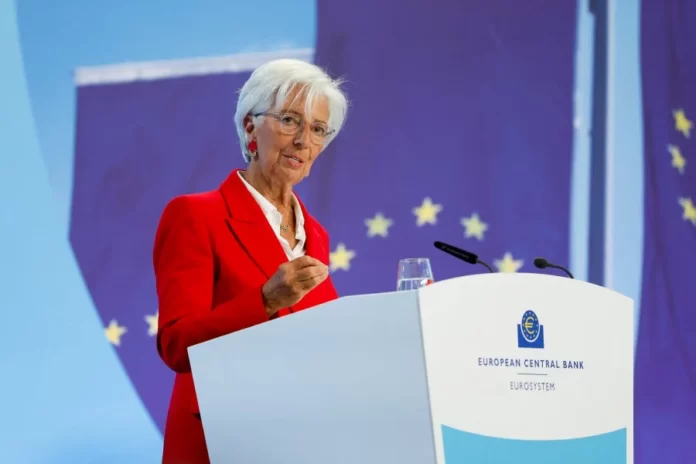The European Central Bank said on Monday it may need to act more forcefully to keep inflation near its 2 percent target, as global economic uncertainty makes price changes more volatile.
The ECB announced an updated strategy, stating that large deviations from the target in either direction would require strong or sustained policy measures to bring inflation back to goal.
President Christine Lagarde said the global economy has become more unpredictable in the post-pandemic period. Speaking at the ECB Forum on Central Banking in Sintra, Portugal, she said companies are adjusting prices more quickly, not just in response to major supply shocks, but also to smaller disruptions.
Lagarde said that firms now tend to react faster to shocks to avoid possible future losses, which could make inflation less stable. This new pricing behaviour could cause inflation to rise or fall more sharply than before.
She added that inflation might not follow a straight path and could suddenly increase or decrease, depending on how firms respond to different market pressures.
Inflation in the eurozone is currently around 2 percent, in line with the ECB’s target. The bank expects it to stay close to that level over the next few years, but Lagarde said risks remain.
To manage those risks, Lagarde said the ECB should act early, especially when inflation moves too high or too low. She said quick policy tightening could help stop a cycle where prices and wages push each other higher. Acting early against low inflation, she added, would reduce the time interest rates stay near zero.























